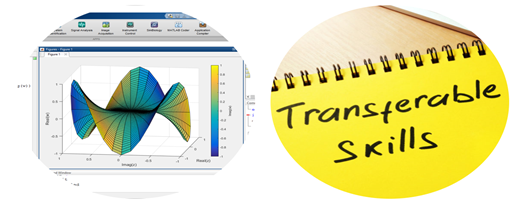My advice for undergraduate students on how to develop technical and soft skills
15/07/2021

Building relevant technical skills throughout university and through work experience are essential when entering the aerospace industry. These skills include; programming and coding, computer programming languages such as Python, C++, C and Java are useful for systems engineering and software development, but not essential in certain areas of aerospace. Programmes like MATLAB and Simulink are also a very beneficial tool that would be useful to learn.
Having a strong mathematical, analytical, and problem-solving mindset is essential for any engineer, as well as having a creative outlook and being an innovative thinker. Having specific attention to detail and a strong awareness of safety and environmental issues is also crucial within the design process, especially regarding future considerations with the UK’s 2050 net zero target.
As well as technical skills, employers also want to know that the applicant has developed a wide range of transferable soft skills, such as project and time management. Communication skills, both verbally and written, are very important in the world of work, and these skills can be drastically improved through university whilst report writing and oral presentations.
I thoroughly recommend making the most of these opportunities and seek help to improve in any ways that you can, it is the perfect time to practice and perfect these skills! The ability to work under pressure and meet deadlines is also something that is very important to employees.
One major benefit from doing an aerospace degree is the affiliation with certain engineering organisations such as the Royal Aeronautical Society with student memberships. These offer vast opportunities for networking with professionals in senior positions within the aerospace sector, attending external webinars and conferences to broaden aerospace knowledge, and a chance to connect with certain mentors who can provide advice and guidance on all engineering aspects. They can help with careers advice, give tips on interview preparation and opportunities that you can get involved with, and provide professional development in terms of becoming Chartered. It also shows that you have a commitment to keeping up to date technical developments and have a good interest in new advancements within the industry, so make the most of these opportunities!
Categories & Tags:
Leave a comment on this post:
You might also like…
From classroom to cockpit: What’s next after Cranfield
The Air Transport Management MSc isn’t just about learning theory — it’s about preparing for a career in the aviation industry. Adit shares his dream job, insights from classmates, and advice for prospective students. ...
Setting up a shared group folder in a reference manager
Many of our students are now busy working on their group projects. One easy way to share references amongst a group is to set up group folders in a reference manager like Mendeley or Zotero. ...
Company codes – CUSIP, SEDOL, ISIN…. What do they mean and how can you use them in our Library resources?
As you use our many finance resources, you will probably notice unique company identifiers which may be codes or symbols. It is worth spending some time getting to know what these are and which resources ...
Supporting careers in defence through specialist education
As a materials engineer by background, I have always been drawn to fields where technical expertise directly shapes real‑world outcomes. Few sectors exemplify this better than defence. Engineering careers in defence sit at the ...
What being a woman in STEM means to me
STEM is both a way of thinking and a practical toolkit. It sharpens reasoning and equips us to turn ideas into solutions with measurable impact. For me, STEM has never been only about acquiring ...
A woman’s experience in environmental science within defence
When I stepped into the gates of the Defence Academy it was the 30th September 2019. I did not know at the time that this would be the beginning of a long journey as ...






